


Holocaust Memorial Day? We Have Already Forgotten
Written By: Dr. Tammy Hoffman
The Israeli discourse on Holocaust remembrance lacks depth and is too far removed from profound and complex study of the critical significance of its Jewish, as well as of its universal, lessons.

Holocaust Remembrance Day 2022 - The Israeli Voice Index
Written By: Prof. Tamar Hermann, Dr. Or Anabi
As Israel prepares to mark Holocaust Remembrance Day (Thursday), IDI’s Viterbi Family Center for Public Opinion and Policy Research examined how Jewish Israelis relate to this solemn day.

Q&A: A Guide to the Perplexed: "Defecting" from a Parliamentary Faction
Written By: Dr. Chen Friedberg, Dr. Assaf Shapira
Ahead of the Knesset House Committee’s debate and vote to declare MK Amichai Chikli as a ‘defector’ - what is a parliamentary defector, how are they designated as such, and what are the repercussions? IDI experts Dr. Chen Friedberg, Dr. Assaf Shapira have all the answers.

In the War on Terror, Not All Means are Justified
Written By: Colonel (Res.) Dr. Liron A. Libman
Harsh measures often have unintended consequences – and, when it comes to collective punishment, they also have troubling moral implications

Israelis Looking Forward to Celebrating the Holidays
Written By: Prof. Tamar Hermann, Dr. Or Anabi
A special IDI survey finds that while Israelis are divided on whether hametz (leavened foods) should be forbidden on Passover from public institutions such as hospitals, over 96% of Jewish Israelis say they plan on holding a Seder this year.
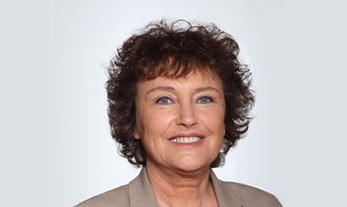
The Israeli Economy: Basic Facts, Recent Developments, Strengths and Challenges
Written By: Prof. Karnit Flug
Prof. Karnit Flug, Vice President of Research and William Davidson Senior Fellow for Economic Policy at the Israel Democracy Institute, as well as the former Governor of the Bank of Israel on Israel’s economy after two years of the global pandemic and political crisis in Israel in conversation with Talia Dekel from the Jerusalem Press Club.

Constructive Motions of No-Confidence: Q&As
Written By: Prof. Gideon Rahat, Dr. Chen Friedberg
IDI experts Prof. Gideon Rahat and Dr. Chen Friedberg explain what a Constructive No-Confidence Vote means for the stability of Israel’s government.

On Mamzerut and the Yearning to Forget
Written By: Adv. Shlomit Ravitsky Tur-Paz
People today are largely judged on merits and not their lineage - except when technology preserves an inherited 'illegitimate' status in ways Jewish law never anticipated.

Biometric and Facial Recognition Bill - IDI Professional Opinion
Written By: Dr. Tehilla Shwartz Altshuler, Adv. Amir Cahane
Memorandum of a Bill to Amend the Police Ordinance, which deals inter alia with the sensitive topic of the use of biometric facial recognition systems by the Israel Police, is abusive and disproportionate and reflects a lack of adequate preparatory work

Minority Governments: Why Smaller Is Not Necessarily Worse
Written By: Dr. Assaf Shapira
In the wake of the latest political crisis - can a minority government prevent yet another election?

Can a New Government be Put in Place? An Explainer
Written By: Dr. Assaf Shapira
In the wake of the announcement by MK Idit Silman (Yamina party) that she no longer supports the current government (as Yamina MK Amichai Chikli did shortly after the coalition was established), the coalition now includes only 60 Knesset members. What are the implications of her move? What developments can we expect to see in the government and the Knesset in the near future?

Autonomy in Flux: IDI’s Annual Conference of the Ultra-Orthodox in Israel
Rabbi Yonatan Reiss, of the Belz community, on their agreement to teach a core curriculum at the opening of the conference: “The change in mindset began when I went to the Ministry of Education and said that for us Haredi public schools are not an option. It is a question of independence. The Ministry of Education agreed and said, 'OK you will be exempt, you will reach the same milestones and we will move forward.'”
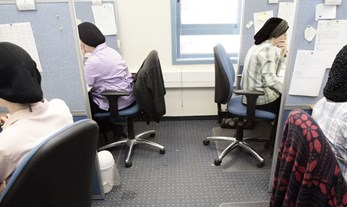
Working Together: Secular and Ultra-Orthodox Israelis in Mixed Workplaces
Written By: Dr. Asaf Malchi
Despite the many challenges integrating the ultra-Orthodox into the workforce is essential for the well-being of Israeli society, the labor market, and the ultra-Orthodox community itself

Majority of Israelis Pessimistic about Security in Foreseeable Future
The Israeli Voice Index for March 2022 focused on Israeli’s security in wake of recent terror attacks and found that the majority of both Jewish and Arab Israelis are pessimistic about Israel’s security situation in the foreseeable future.

The Majority of Israelis Pessimistic about Security in Foreseeable Future
Written By: Prof. Tamar Hermann, Dr. Or Anabi
The Israeli Voice Index for March 2022 focused on Israeli’s security in wake of recent terror attacks and found that the majority of both Jewish and Arab Israelis are pessimistic about Israel’s security situation in the foreseeable future.

Workplace Diversity in a Polarized Society: How Employers View the Ultraorthodox in "Mixed" Workplaces
Written By: Dr. Asaf Malchi
This new study offers the perspective of Jewish Israelis who are not ultra-Orthodox—their attitudes on ultra-Orthodox integration in the labor market and their experience with employing the ultra-Orthodox or working alongside them on a daily basis.

Sa’ar’s Proposal is Balanced
Written By: Prof. Suzie Navot
The proposal to hold the public hearing of the Judicial Selection Committee is a reasonable arrangement and the fact it was agreed to by the President of Supreme Court, indicates that it is intended to increase public confidence in the selection process of justices.

IDI Establishes the Joan and Irwin Jacobs Center for Shared Society
The Israel Democracy Institute announced today the establishment of the Joan and Irwin Jacobs Center for Shared Society and the creation of a prestigious new Distinguished Fellowship for former policymakers. Former President Reuven Rivlin will serve as the inaugural Joan and Irwin Jacobs Distinguished Fellow at IDI.
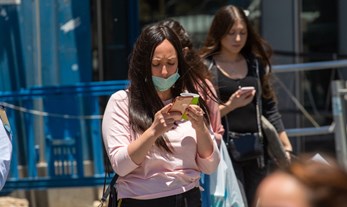
The Israeli Labor Market and COVID-19: What Really Happened?
Written By: Prof. Yotam Margalit, Dr. Itamar Yakir
A new study utilizes extensive data to offer a new understanding of the changes the labor market underwent during two years of Covid-19

60% of Israelis Back the Government’s Policy on the Russia-Ukraine Conflict - Special Survey
Written By: Prof. Tamar Hermann, Dr. Or Anabi, Yaron Kaplan, Inna Orly Sapozhnikova
The Israel Democracy Institute's Viterbi Family Center for Public Opinion and Policy Research published a special survey on the stances of Israelis on Russia’s invasion of Ukraine and issues related to the conflict. The survey included both native-born Israelis and immigrants from the former Soviet Union – and found that 60% of Israelis back the government’s policy on the conflict and a large minority (44%) support absorbing refugees regardless of nationality

Rabbi Kanievsky’s Passing Symbolizes Further Decentralization of Haredi Leadership
Written By: Dr. Gilad Malach
For now, no one in the next cadre of prominent Lithuanian rabbis stands out as likely to inherit the leadership mantle at a relatively young age.
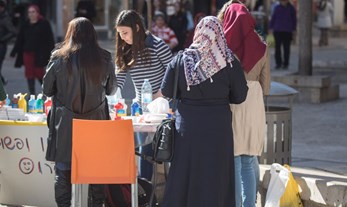
The Inaugural Annual Statistical Report on Arab Society in Israel
The Annual Statistical Report on Arab Society was published today for the first time by the Israel Democracy Institute. The Report provides an overview of the changes that have taken place in Arab society in recent decades in a number of fields, including education, employment, and lifestyle.

Statistical Report on Arab Society in Israel: 2021
Written By: Dr. Nasreen Haddad Haj-Yahya, Dr. Muhammed Khalaily, Dr. Arik Rudnitzky, Ben Fargeon
Arab society in Israel is being revolutionized by the rise in the standard of living, life expectancy and education, along with the decline in fertility rates, changes to family structures, and an increasing desire to realize individual aspirations at the expense of collective values.

A More Hospitable Policy Towards Ukrainian Asylum Seekers
Written By: Prof. Yuval Shany
Israel should adopt a more hospitable policy towards Ukrainian asylum seekers and afford them with short-term stay permits

Israelis Support the West’s Policies on Russia Press Release
The Israeli Voice Index for February 2022 found that almost half of Israelis (48%) support the current policy of western countries to impose harsh sanctions on Russia but not to engage directly with military force. 37% of those surveyed believe that a military intervention is the preferred course of action.

Israelis Support the West's Policies on Russia
Written By: Prof. Tamar Hermann, Dr. Or Anabi
The Israeli Voice Index for February 2022 found that almost half of Israelis (48%) support the current policy of western countries to impose harsh sanctions on Russia but not to engage directly with military force. 37% of those surveyed believe that a military intervention is the preferred course of action.
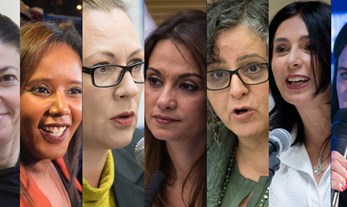
Women in Israeli Politics: 2022
Written By: Prof. Ofer Kenig
As we mark International Women’s Day, there are a record number of women are in the Knesset (35) and in the government (9) but most senior government positions are still held by men.

Women, Go for It!
Written By: Dr. Idit Shafran Gittleman
The IDF, like every other state institution in Israel, is obligated to the principle of equality – meaning that any woman who is capable of doing so must be permitted to serve in elite combat units
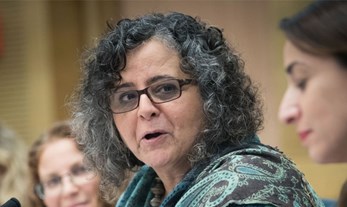
Arab Women Call Out to Arab Men: Let's Join Forces
Written By: Dr. Nasreen Haddad Haj-Yahya
Closing the gender gap is crucial to closing social and economic gaps overall - Arab men and women must work together towards this goal

Arab Residents of Mixed Cities: A Snapshot
Written By: Dr. Nasreen Haddad Haj-Yahya, Adv. Oded Ron, Ben Fargeon
This study aims to provide an up-to-date snapshot of the current situation in mixed cities alongside a description of trends in Israel’s mixed cities over time, in five closely related fields—welfare, education, higher education, employment, and crime—by presenting data collected over a period of time, as a critically important input to sound policymaking.

